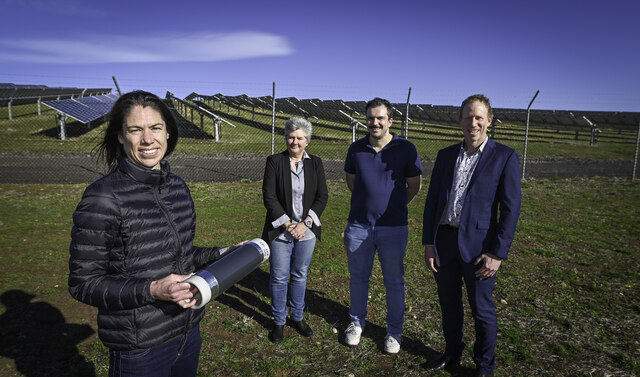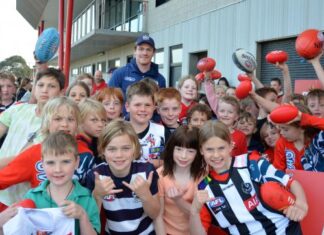A new research project is exploring techniques to use food and garden waste to improve soil health in the region and potentially power battery production.
Researchers at Deakin University, Barwon Water and RMIT are working together on the Recycling and Clean Energy Commercialisation Hub (REACH) project, transforming biosolids from wastewater treatment and household waste into a biochar product.
The project will draw on a recent Deakin study demonstrating the benefits of biochar – a carbon-rich, charcoal-like material – to both soil health and greenhouse gas reduction.
Professor Lambert Brau is Deputy Dean of Deakin’s Faculty of Science, Engineering and Built Environment.
“This… trailblazing project will build on Deakin’s international research exploring what the optimal formulations for biochar are for the Geelong region’s soil conditions to produce high-value cereal and legume crops,” Prof Brau said.
The REACH project will conduct trials in the lab, greenhouse and in the field, developing different biochar formulations to support fertility and crop yields and providing detailed assessments of potential commercial uses.
It will also explore the possibility of using biochar as a sustainable source for the nation’s battery supply chain.
Associate Professor Nolene Byrne, who focuses on circular design as part of Deakin’s Institute for Frontier Materials, said biochar was “looking promising as a next generation battery material”.
“We’re exploring if biochar can be used as the anode active material within sodium-ion batteries,” Prof Byrne said.
“If we are successful, sodium-ion batteries could become a safer, cheaper alternative for the lithium-ion batteries we use to store solar energy in our grid storage and home batteries.”
The REACH project is backed by a $50 million grant from the federal government’s Trailblazer Universities Program.









